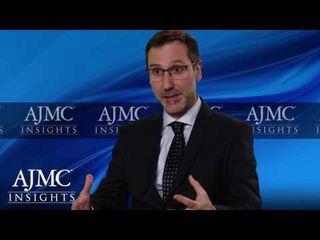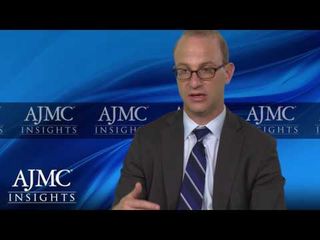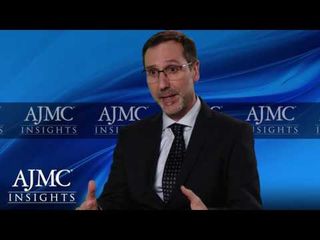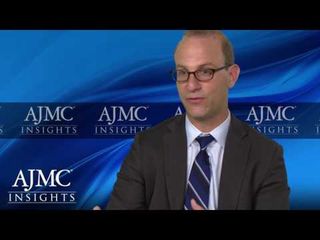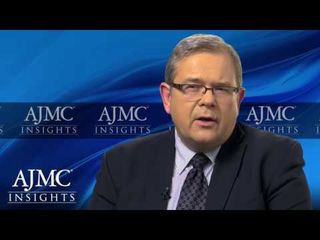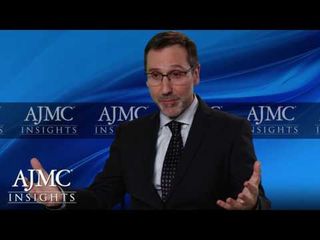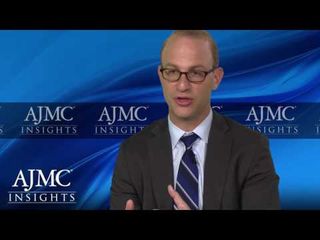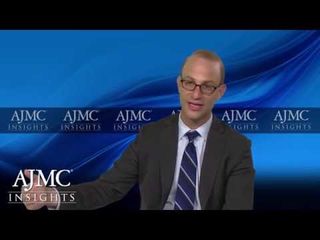
Oncology
Latest News
Latest Videos

More News

At the 5th annual meeting of Patient-Centered Oncology Care®, hosted by The American Journal of Managed Care, November 17-18 in Baltimore, Maryland, experts with diverse experiences and backgrounds discussed the contradiction presented by immuno-oncology agents in the world of precision medicine.

President-elect Donald J. Trump’s upset win almost certainly means the end of the Affordable Care Act (ACA) as we know it, but experts who spoke at Patient-Centered Oncology Care Thursday and Friday said the movement toward value-based payment will continue. The fifth annual meeting, presented by The American Journal of Managed Care, took place in Baltimore, Maryland.

This week, the top managed care news included president-elect Donald Trump outlining parts of Obamacare he would be willing to keep, lawmakers confirming they still want to pass the 21st Century Cures Act, and the FDA held a 2-day hearing on off-label use.

What makes Patient-Centered Oncology Care stand out from other meetings is the equal representation among all stakeholders, which gives the meeting a unique depth, said Bruce Feinberg, DO, vice president and chief medical officer at Cardinal Health Specialty Solutions.

A survey examining nonfinancial barriers to cervical cancer screening indicated that women who were rarely or never screened were more likely to report having 1 or more chronic conditions. The study suggests that physicians include preventive services along with treatment for chronic conditions.

Sanofi Pasteur has announced that it has decided to discontinue production of the BCG vaccine, which is indicated for the treatment and prophylaxis of carcinoma in situ of the urinary bladder.

A study published by researchers from the Fred Hutchinson Cancer Research Center in Seattle has found that admission to the intensive care unit reduced survival and increased the cost of care among patients undergoing treatment for acute myeloid leukemia.

A study conducted in Canada to estimate the prevalence of psychotropic and opioid medication use by older women diagnosed with breast cancer found a significant increase in use, especially during the active treatment phase.

A hospital in China has made history by injecting a patient with lung cancer with revolutionary, yet controversial, CRISPR-Cas9—edited T cells. The first patient was injected on October 28.

Amgen and Allergan have announced that they have submitted a Biologics License Application (BLA) for ABP 215, a biosimilar to bevacizumab (Avastin).

A new study conducted at the Massachusetts General Hospital evaluated the impact of intraoperative radiotherapy (IORT), along with induction chemotherapy and chemo-radiotherapy, in patients with advanced disease, and observed hints of success.

A prospective trial among breast cancer patients enrolled in The Pathways Study has found that higher levels of vitamin D can lower the risk of breast cancer morbidity and mortality.

A study conducted in Australia has concluded that a person’s inherited risk factors for melanoma should be considered when developing self-examination and surveillance programs.

Will Vice President Joe Biden's Cancer Moonshot initiative be able to sustain it's momentum in 2017 following the transition in government?

The FDA today granted approval to the programmed death ligand-1 inhibitor, nivolumab (Opdivo), for treatment of patients with recurrent or metastatic squamous cell carcinoma of the head and neck (SCCHN), following platinum-based treatment.

Breast cancer screening may not improve in early medical home implementation.

According to CDC’s Morbidity and Mortality Weekly Report, the cigarette smoking rate of adults in the United States has seen a significant drop during the decade from 2005 to 2015.

The American Society of Clinical Oncology’s Ad Hoc Palliative Care Expert Panel has developed specific evidence-based recommendations for access to palliative care services for individuals with advanced cancer and for their family caregivers.

A study published in the Journal of the National Comprehensive Cancer Network has found that screening for distress tests improves provider confidence and awareness toward person-centered care.

Three of the 4 cities to pass taxes on soda are in Northern California, not far from Berkeley, which passed the nation's first soda tax in 2014.

The Prevent Cancer Foundation has developed a digital tool that can compare coverage of screening tests for breast, cervical, colorectal, lung, and prostate cancers across health insurance plans available in a specific state.

With value-based reimbursement now far from its infancy, the chief medical officer for Humana will forecast what’s ahead in payment reform-and how oncology connects with what is happening in primary care, hospitals, and the pharmaceutical industry. Roy A. Beveridge, MD, will open Patient-Centered Oncology Care, which will meet November 17-18, 2016, in Baltimore, Maryland.

Based on a retrospective meta-analysis of clinical trial data, authors of a recent paper in JAMA Oncology concluded that BRAF/MEK and programmed death receptor-1 (PD-1) inhibitors were the most effective treatments that were relatively safe in melanoma.

A new study by researchers at the Johns Hopkins University has found that second opinions did not change treatment choice among men diagnosed with low-risk prostate cancer.

Researchers from Canada’s McGill University have developed a potential tool that can detect early signs of cachexia in cancer patients, which could impact survival.



